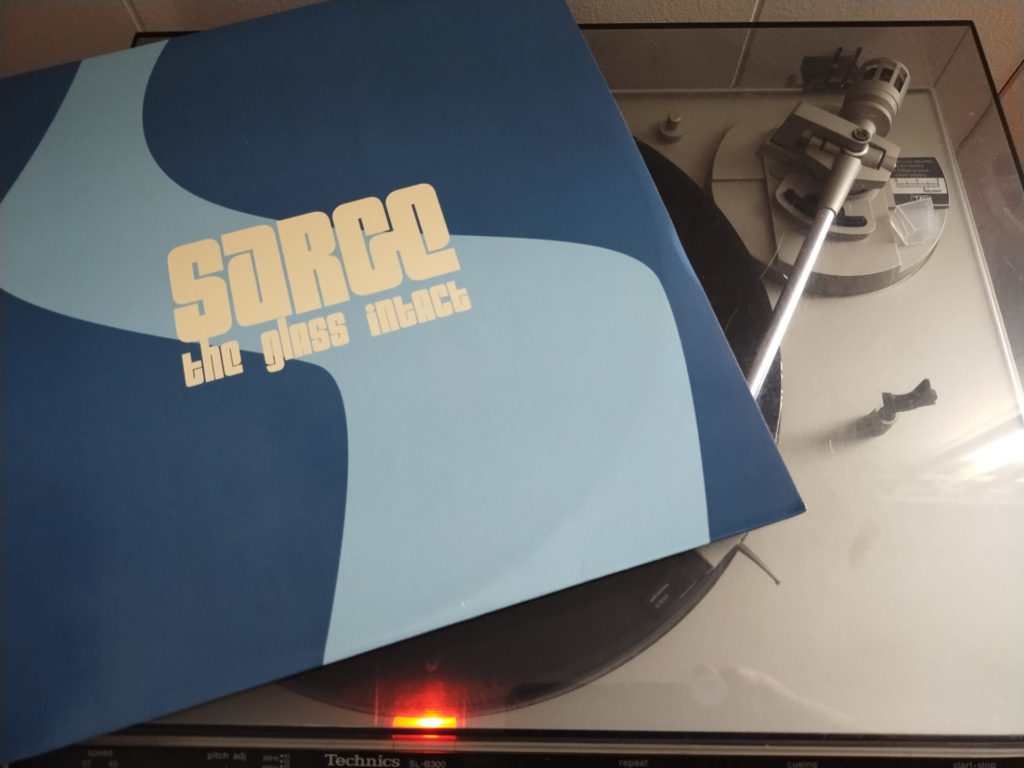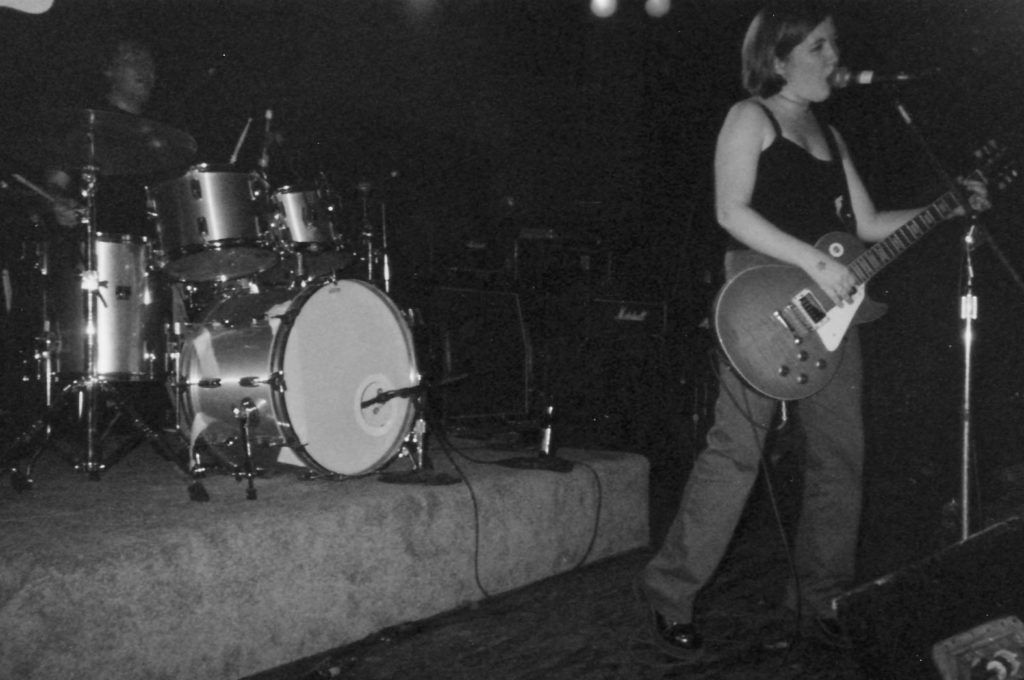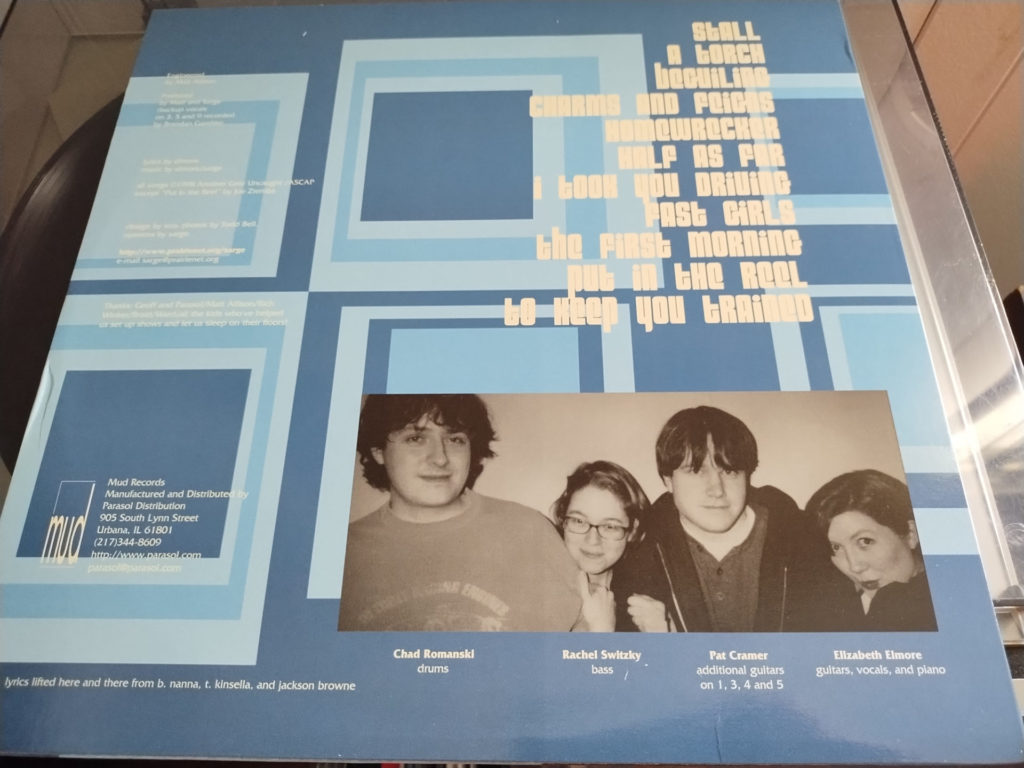The 1990s were big for the Chambana music scene, with multiple bands being courted (or signed) by major labels, and others embarking on big tours with big names. But stratospheric success isn’t the point for Champaign bands. The scene is built on a bedrock of having something to say and having places to play. And the only accolade most local bands care about is having people to play for.
That’s the environment that fostered and greeted Sarge’s The Glass Intact when it was released in 1998. Even after 25 years, the album easily sounds like it could’ve been recorded just the other day. And the songs sound like they would pack venues full of rock-ready crowds right now.

Under the pressures of road-tested songwriting and relationships gone awry, The Glass Intact hardens the raw ingredients from their debut Charcoal (an album packed with basement-show bangers including “Dear Josie, Love Robyn”) into a gem. It’s the rare sophomore release that doesn’t slump.
While more polished than the first record, The Glass Intact still leans on sparse production and lets the songwriting take center stage. The whole album feels authentic, not suffering from the heavy hand of too many effects or too many layers or too much control-board chicanery.
Undoubtedly influenced by the early ‘90s Riot Grrrl movement, as well as revelatory releases such as Liz Phair’s Exile in Guyville and Shirley Manson’s libidinous vocals on Garbage’s debut, The Glass Intact carves out a unique spot in the woman-led alt-rock landscape. Is it pop punk, punk pop, grunge adjacent, or something else entirely? Elizabeth Elmore’s powerful guitar and Rachel Switzky’s driving bass lines give one answer, while the raw honesty of the lyrics points to “all of the above.”

There’s an unambiguous snarl beneath all the songs, even in the softer moments. It’s the kind of simmering pissed-offness that is all about other people and their bullshit… except it isn’t, really. In truth, it’s about the swirling eddy of sentimentality and introspection that comes from really thinking about how you feel. And it’s powered by a need to rebel against chauvinistic beliefs that women should not express — or even have — those feelings.
We’re walking into the middle of slow-motion heartbreaks and epiphanies in progress as we listen, thanks to lyrical content that is deeply authentic and almost painfully relatable. These are love songs, but definitely not the sugar-coated, butterflies-in-the-stomach kind. Instead they’re tales of remorse and passion and longing and doubt, all relayed in real time. While Midwest emo is all about wearing hearts on sleeves, many of Sarge’s songs are about the myriad things that are felt but never said. This collection of 11 tracks is about the way that love really goes and the inevitability of the outcome.

Album opener “Stall” drops you right into the core of what this album delivers: hard-won lessons and heartfelt lyrics combined with power-pop sensibilities. Lines like “Been with lots of boys and they screwed me up, so I learned to lie” are emblematic of women-led rock of the ‘90s, aimed at calling out and tearing down patriarchal expectations and definitions. Out with the meek, in with the palpable.
“Beguiling” combines poppy melodies and a deceptively upbeat rhythm contrasted with lyrics about betrayal. Mutual lust colliding with an unbearable personality, a “likable bully” who drops “loaded lines,” leading to the conflicted feeling of “I miss you but … I’m giving up.”
From unspoken words of warning about dating a creep (“Charms and Feigns”), to ill-advised and abusive relationships (“Homewrecker”), to admiration turned desire (“Fast Girls”), the album is packed with portraits of the way things are — messy, complicated, unpretty.
“Half as Far” might be the perfect mid-album track. The soft opening — a clean electric six-string and simple piano line the only accompaniments to Elmore’s vocals — gives way to grungy guitar and a driving bass that rises to the fore like a thumping heartbeat. All of it matches perfectly with the anticipatory grief of a relationship not yet ended, and conflicted feelings of loving and needing while knowing that this isn’t working anymore.
We get a dose of irrepressible lust in “I Took You Driving” and a tale of temptation and long-distance difficulties in “The First Morning.” Then “Put in the Reel” and “To Keep You Trained” close out this serious contender for a desert-island album.
Elizabeth Elmore went on to pen even more gut-punching rock with The Reputation, with tracks like “Let This Rest” that distill Sarge’s heartfelt and hormone-fueled songwriting down to a smooth indie-rock liquor. But those later releases, complete with their grown-up alt-rock sensibilities, lack the fervor and frustration expressed and expelled on The Glass Intact.
Twenty-five years after its release, The Glass Intact is an ideal choice for those moments when you want to remember being young and energized and exposed. It’s a great listen for anyone who has navigated the emotional bog of their 20s and come out the other side at least a bit wiser, more thoughtful, and more true to themselves. And it’s a tremendous example of Chambana’s contributions to an alt-rock landscape where women kicked holes in lingering misogyny through powerful music, and actively flipped off the notion that women should be “seen not heard,” or that they should only be seen and heard in very specific and limiting ways.








